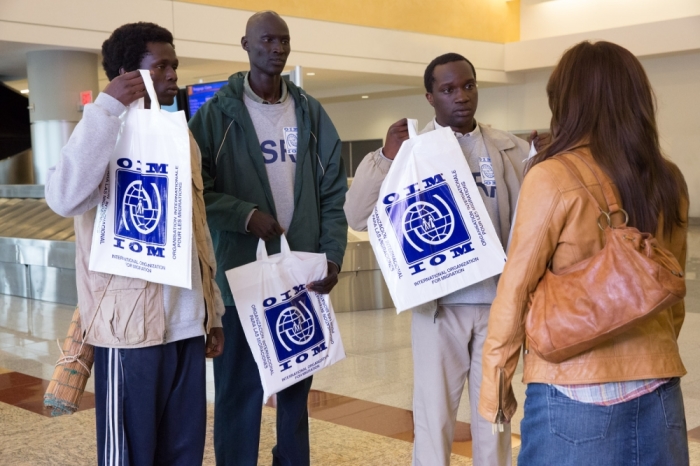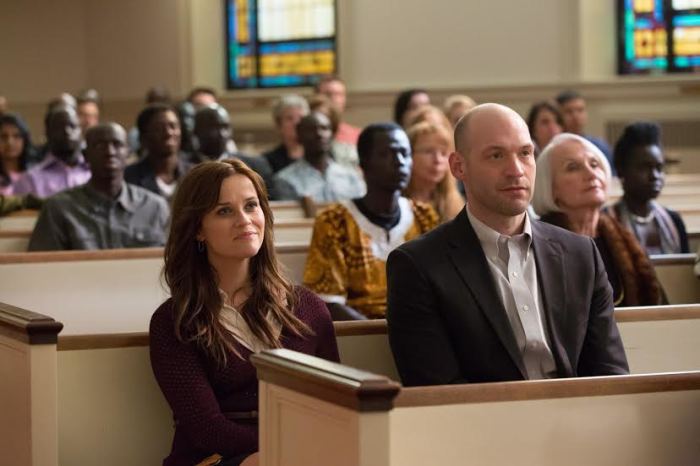'The Good Lie' Review: A Beautiful Journey With Realistic Characters and a Warming Sense of Family

"The Good Lie" opens in theaters this week and tells the true story of the lost boys of the Sudan; refugees who fled from a horrifying civil war that ripped that land apart in the 1980s and '90s.
The film opens up with a group of children fleeing the Sudan by foot, traveling thousands of miles to a camp for refugees. During the trip, these young Sudanese girls and boys encounter soldiers and various obstacles along the way and manage to make it to the camp, but not without losing a few of their friends.
They eventually grow older and are taken in by families in the U.S. who work together with faith-based charities. Four of the refugees, Mamere (Arnold Oceng), Jeremiah (Ger Duany), Paul (Emmanuel Jal) and Abital (Kuoth Weil), are eventually faced with the task of adjusting to American culture.
The beginning of "The Good Lie" pulls the viewer directly into this horrifying situation following these children on foot as they strive to escape persecution in a land where their mothers and fathers were killed.
Director Philippe Falardeau takes those watching on a journey that feels foreign, but worth traveling at the same time. Without too much dialogue, writer Margaret Nagle is able to convey the refugees' plight using Christian themes, such as Moses parting the Red Sea. She also displays the perils of traveling without food and shelter, which at one point forces the children to drink their own urine without even discussing it.
By the time the refugees arrive in the U.S., they are young adults with big dreams. It's here where they encounter Carey Davis, played by the Academy Award-winning actress Reese Witherspoon, who unintentionally becomes emotionally invested in the lost boys after faith-based charities drops the ball with picking them up from the airport.
Writer Margaret Nagle admitted the role was tailored for Witherspoon and it certainly fits her like a glove. She plays Davis with the perfect balance of honesty and genuine compassion and supports the real stand-outs here which are the lost boys and girl.

Oceng's portrayal as the "chief" and leader of the lost boys provides the viewer with perspective on what it's like to lead your own people into the unknown. His character, Mamere, has big dreams of becoming a doctor in the U.S., while his brothers, Jeremiah and Paul, just wanted to get out of a bad situation.
Their brotherhood and their relationship with sister Abital, who gets separated from the pack once they arrive in the U.S., seems as authentic as the plight in the Sudan. The brilliant writing also showcases their culture shock.
Everything from using lights, to driving cars and even McDonalds are completely foreign to them. Nagle is able to portray this in a lighthearted way that comes off even comical at times.
One of the more stand-out scenes features the return of Abital, orchestrated by Davis, who decides to take her in after she couldn't find a family in Kansas City and was sent to Boston instead. The group is preparing a Christmas celebration when Davis springs the surprise on them that Abital is waiting at the front door. Paul, a newbie to the holiday, screams "I like this Christmas" with a smile that radiates the screen. You really can't help but love these characters.
The faith aspect of "The Good Lie," which revolves around the Christian faith of these refugees, is displayed throughout the film naturally.
From the group carrying a Bible during their journey, to more low-key appearances, such as a "God is good" message written on the front of a truck Mamere travels on when he returns to Africa, "The Good Lie" uses faith in its most natural form.
This film is not preachy, nor does it try to shove anything down the viewers' throats. Instead, it builds a relationship between those watching and the characters that compels the viewer to get involved in this crisis a possibly lend a helping hand.
Every time I cried during "The Good Lie," I felt like it was for a close friend or family member. That's why this film works.





























